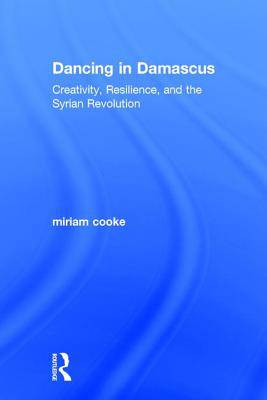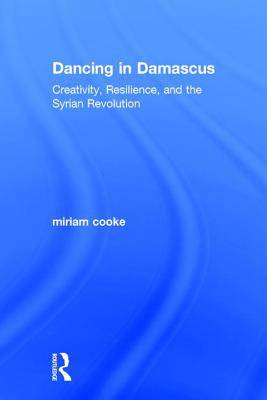
- Afhalen na 1 uur in een winkel met voorraad
- Gratis thuislevering in België vanaf € 30
- Ruim aanbod met 7 miljoen producten
- Afhalen na 1 uur in een winkel met voorraad
- Gratis thuislevering in België vanaf € 30
- Ruim aanbod met 7 miljoen producten
Dancing in Damascus
Creativity, Resilience, and the Syrian Revolution
Miriam CookeOmschrijving
On March 17, 2011, many Syrians rose up against the authoritarian Asad regime that had ruled them with an iron fist for forty years. Initial successes were quickly quashed, and the revolution seemed to devolve into a civil war pitting the government against its citizens and extremist mercenaries. As of late 2015, almost 300,000 Syrians have been killed and over half of a total population of 23 million forced out of their homes. Nine million are internally displaced and over four million are wandering the world, many on foot or in leaky boats. Countless numbers have been disappeared. These shocking statistics and the unstoppable violence notwithstanding, the revolution goes on.
The story of the attempted crushing of the revolution is known. Less well covered has been the role of artists and intellectuals in representing to the world and to their people the resilience of revolutionary resistance and defiance. How is it possible that artists, filmmakers and writers have not been cowed into numbed silence but are becoming more and more creative? How can we make sense of their insistence that despite the apocalypse engulfing the country their revolution is ongoing and that their works participate in its persistence? With smartphones, pens, voices and brushes, these artists registered their determination to keep the idea of the revolution alive. Dancing in Damascus traces the first four years of the Syrian revolution and the activists' creative responses to physical and emotional violence.
Specificaties
Betrokkenen
- Auteur(s):
- Uitgeverij:
Inhoud
- Aantal bladzijden:
- 154
- Taal:
- Engels
Eigenschappen
- Productcode (EAN):
- 9781138692169
- Verschijningsdatum:
- 15/12/2016
- Uitvoering:
- Hardcover
- Formaat:
- Genaaid
- Afmetingen:
- 152 mm x 229 mm
- Gewicht:
- 361 g

Alleen bij Standaard Boekhandel
Beoordelingen
We publiceren alleen reviews die voldoen aan de voorwaarden voor reviews. Bekijk onze voorwaarden voor reviews.











